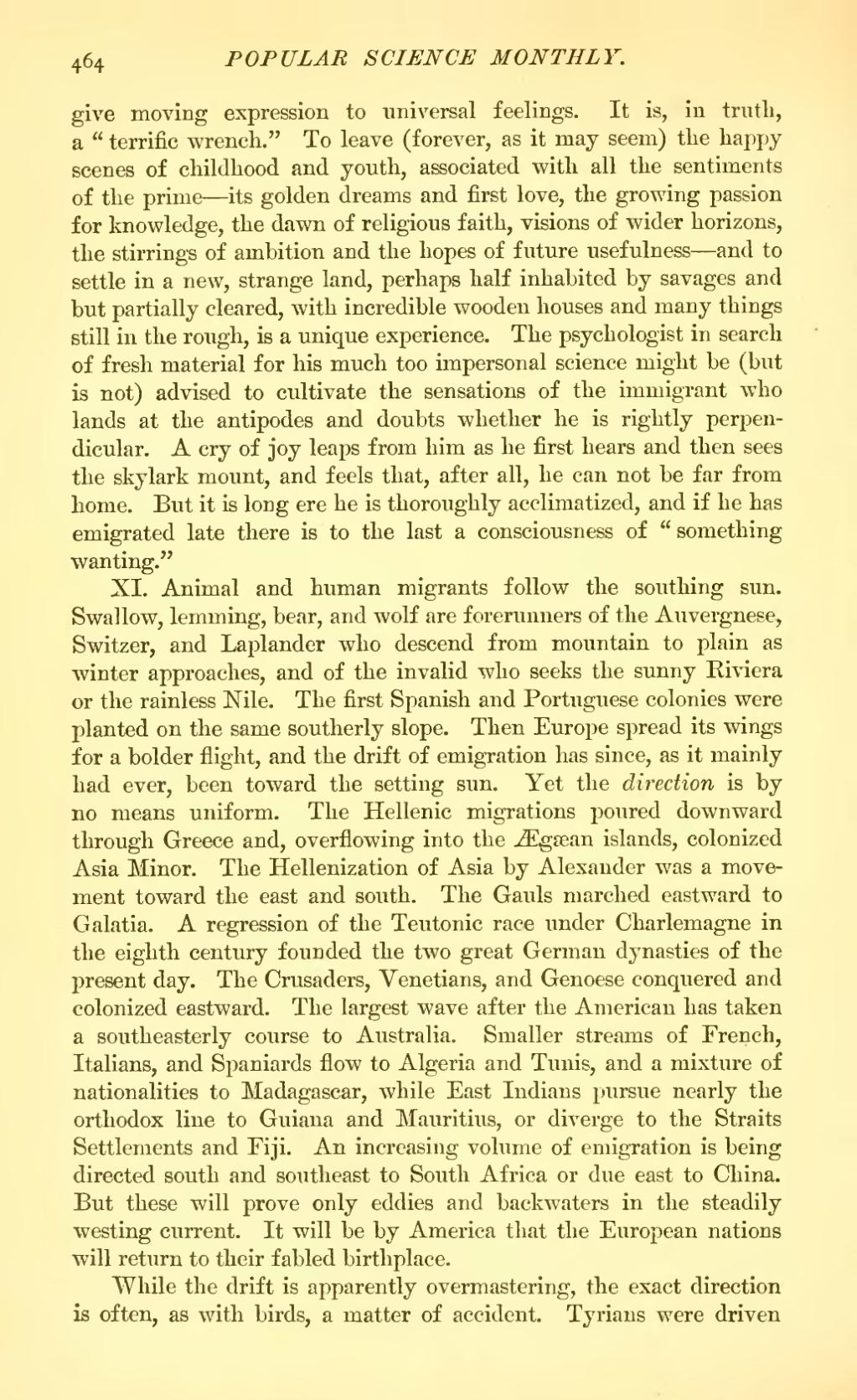give moving expression to universal feelings. It is, in truth, a "terrific wrench." To leave (forever, as it may seem) the happy scenes of childhood and youth, associated with all the sentiments of the prime—its golden dreams and first love, the growing passion for knowledge, the dawn of religious faith, visions of wider horizons, the stirrings of ambition and the hopes of future usefulness—and to settle in a new, strange land, perhaps half inhabited by savages and but partially cleared, with incredible wooden houses and many things still in the rough, is a unique experience. The psychologist in search of fresh material for his much too impersonal science might be (but is not) advised to cultivate the sensations of the immigrant who lands at the antipodes and doubts whether he is rightly perpendicular. A cry of joy leaps from him as he first hears and then sees the skylark mount, and feels that, after all, he can not be far from home. But it is long ere he is thoroughly acclimatized, and if he has emigrated late there is to the last a consciousness of "something wanting."
XI. Animal and human migrants follow the southing sun. Swallow, lemming, bear, and wolf are forerunners of the Auvergnese, Switzer, and Laplander who descend from mountain to plain as winter approaches, and of the invalid who seeks the sunny Riviera or the rainless Nile. The first Spanish and Portuguese colonies were planted on the same southerly slope. Then Europe spread its wings for a bolder flight, and the drift of emigration has since, as it mainly had ever, been toward the setting sun. Yet the direction is by no means uniform. The Hellenic migrations poured downward through Greece and, overflowing into the Ægæan islands, colonized Asia Minor. The Hellenization of Asia by Alexander was a movement toward the east and south. The Gauls marched eastward to Galatia. A regression of the Teutonic race under Charlemagne in the eighth century founded the two great German dynasties of the present day. The Crusaders, Venetians, and Genoese conquered and colonized eastward. The largest wave after the American has taken a southeasterly course to Australia. Smaller streams of French, Italians, and Spaniards flow to Algeria and Tunis, and a mixture of nationalities to Madagascar, while East Indians pursue nearly the orthodox line to Guiana and Mauritius, or diverge to the Straits Settlements and Fiji. An increasing volume of emigration is being directed south and southeast to South Africa or due east to China. But these will prove only eddies and backwaters in the steadily westing current. It will be by America that the European nations will return to their fabled birthplace.
While the drift is apparently overmastering, the exact direction is often, as with birds, a matter of accident. Tyrians were driven

